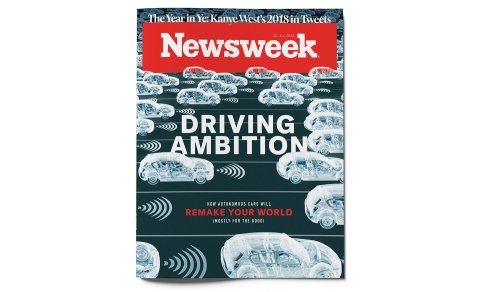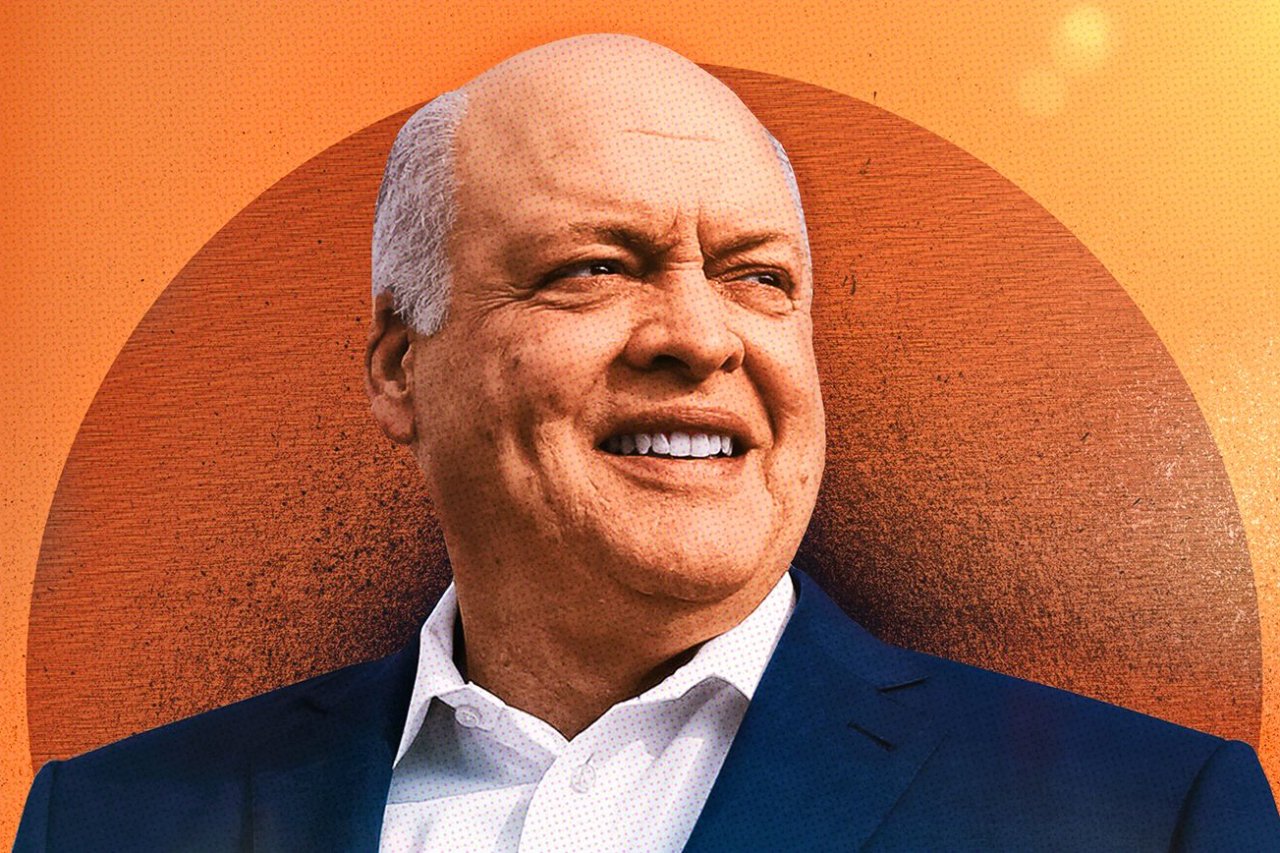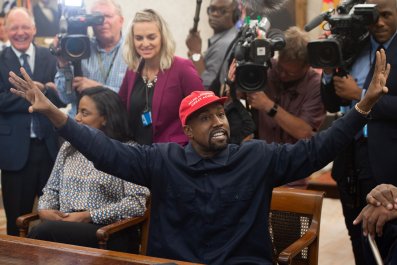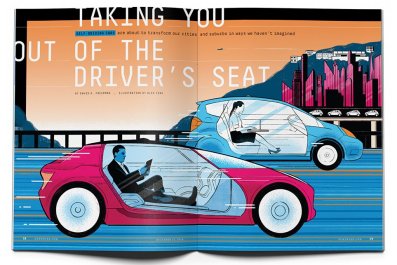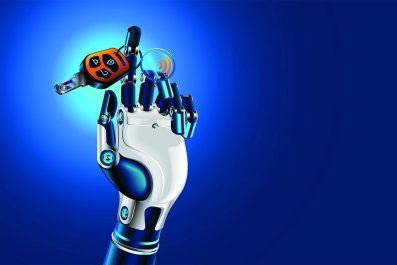Building cars that can drive themselves through busy downtown streets safely and efficiently is above all a staggering achievement in artificial intelligence, which is why tech companies were first off the mark to develop them. Traditional car manufacturers are now spending billions to catch up, hoping that their well-known brands will give them an edge. Ford, which plans to roll out a fleet of autonomous vehicles in 2021, ranked No. 1 in Newsweek 's survey of automobile brands. We caught up with CEO Jim Hackett in Miami in November to talk about Ford and the future of transportation.
You're now calling Ford a "mobility company." What does that mean? Henry Ford brought us mobility. But for the first time in history, you've got the confluence of technology that will let the vehicle drive itself, the ability for the vehicles to communicate with each other and all talk to the cloud. The cities will also communicate with the cloud, which then connects with the vehicles in ways that actually help choreograph traffic.
Is the advent of driverless cars as big a change as the Model T? It is. Some people estimate that the whole system of vehicles, transportation and coordination will cost $10 trillion. That's half the GDP of the U.S. today. So it's a really big opportunity.
What is your vision of transportation 10, 20 or 50 years from now? We think the streets now come back to people. We've done models where, because of the way you can choreograph the transportation system, people in life actually spill back into the areas where they've been taken away. That is what will make cities more livable, because they're designed around what humans crave most.
City planners say that traffic and environmental problems will only get worse if, instead of sharing, people opt to own their own autonomous cars. I don't think it's going to make things worse. More people are going to live in cities in the next 20 years than they ever have in history. The only way the cities are going to work is if there's shared transportation. There's just not enough places to park everything. But that's different than saying everybody's going to give up their car.
Will there be different patterns of ownership in the city versus the suburbs? It's possible. I think we're ahead in forecasting this—that people won't have as many vehicles because they'll share one and own one.
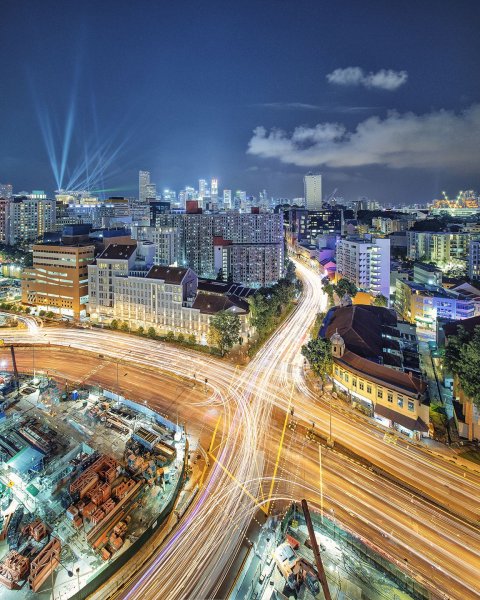
Does this mean Ford will sell fewer cars? The way to think about it is, we're going to be transporting more people. The market opportunity is enormous just because of the size of these populations.
When people think of Ford, they think of cars they can buy and drive. How will the Ford brand translate to cars that drive themselves? We think it's a perfect extension of Ford—the notion of transportation, of people moving and of objects that have to be designed for safety, high performance and joy. People love to be in vehicles. I'm often asked, "Does this mean we're getting rid of drivers forever?" We don't know that. It may be that [autonomous] vehicles just keep you from crashing, [but] you still control the way that you're navigating through a city. I think there's something to that, because people like to have a sense of control.
Will driving your own car—a Mustang, say—one day be a luxury that few can afford? We're planning on leveraging people caring about more than just moving from Point A to Point B. They love the sound of the Mustang. They love driving it. That's not going to go away.
So cars will still have humans at the wheel? There's evidence that people really love driving. Personally, in my last hour of work, when coming home on I-94, I decompress. I enjoy the drive home.
What car do you drive? I'm driving an F-150, the No. 1 vehicle in the world.
